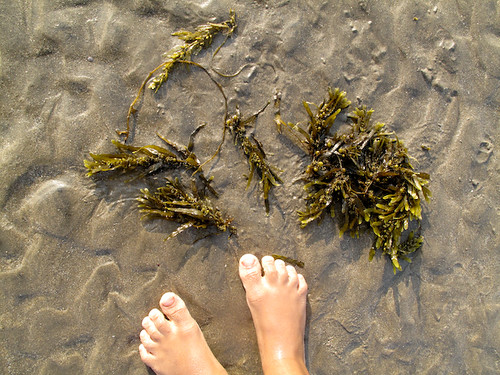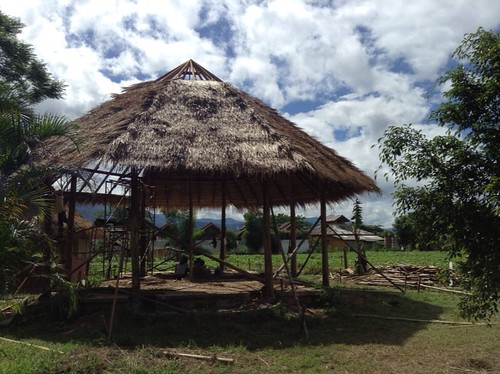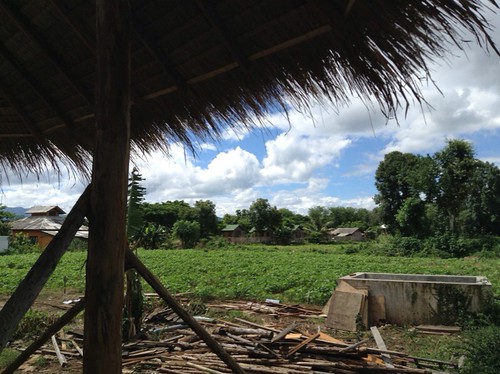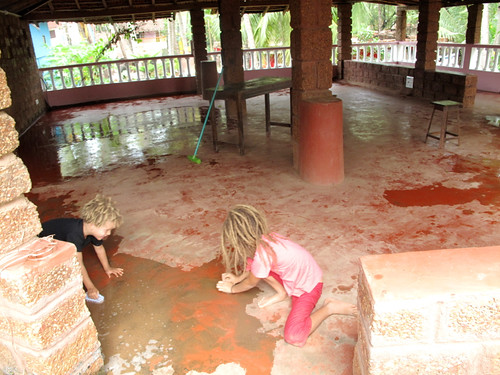
Loneliness is suffering, and it can be crippling. We all have periods of loneliness in our lives, and in many ways it can be out of our control. However, I believe that loneliness can lead us to a place of understanding and peace, if we allow it.
Why am I writing about loneliness when this blog is about community? I could write a thousand posts about community--maybe at some point I will. My husband and I have lived in communities all our adult lives, including for the entire time we've been married. For me it's been since I was eighteen years old--that's fourteen years now! Chinua and I have lived in tiny bedrooms in large houses filled with people, we've lived in tents with other people around us, we've traveled on an RV with so many people that some of us had to sleep on the floor on under the RV or between the front seats. In more recent years our house has been next door to others in our community. We eat together, meditate together, walk to the beach together.
Intentional Community is our normal. We don't know any other way of life, and I could talk for hours about my love of community, my failures in being a loving part of a community, my successes... but right now, I'm actually feeling kind of lonely.
Chinua and I are beginning a new moment in the life of our larger community. We've moved to Thailand in order to begin a meditation practice and community here, which is exciting and interesting and full of possibility. But we're on our own right now (as "on our own" as any six person family can be) and loneliness is a new and unsubtle part of our lives. As I'm working through the loneliness I'm encountering in my own life, I thought I'd share a little of what I've discovered about loneliness over the years.
One, loneliness is inevitable. There isn't any way to escape loneliness because if you go deeply to the very center of who you are, in your inner being, you will find that you are there... alone. This will always be true, whether you are single or married, living alone or in community, in a big family or in a small family. Look deep inside and there you are, face to face with God, by yourself. This solitude doesn't necessarily need to be lonely, it won't be, if you have a full understanding of God in your life, touching your deepest heart, but few of us will be driven to this understanding without loneliness.
This deep reality of your solitude, if anything, becomes more clear in community. Community living forces us to come to terms with your aloneness. Maybe you've always thought-- What I really need is a group of like-minded people to live with, that's what will make me accepted, finally. You look for a group of fellow Christians, or vegans, or woodcarvers. But the deepest things are the hardest things to share and it doesn't take a long time of living with others to realize that you are clumsy in love, misunderstood, not comprehending. You open your mouth to explain your great idea for a new water system and someone shoots it down, and there you are! Alone! Or you've waited a long time to get married, but when you do, you see that you sit side by side, but you cannot climb all the way into your spouse's head, neither would you want to. You are one, but you are alone.
Two, loneliness reveals the gift of togetherness. Now that I am temporarily living outside of community, I treasure my loneliness because it reveals to me what a gift I've had, all these years, with all these shining souls in and out of my life, slamming doors and cooking and taking care of kids. I hold these memories like baby birds, the broken memories and the whole, shining ones, both. I remember coming home on the day that my daughter was born, sitting on the couch in one of the rooms of our flat, and how everyone sat around us in awe, touching her tiny face and hands. I remember how loved I felt. I remember all the times I felt like I belonged to something bigger than myself, the times I saw Jesus clearly radiating in a close friend giving something of his or hers away to someone who lived on the street and in those moments how in awe I felt of this wonder we have, this love. I also remember all the times I was selfish, the times I chose anger over forgiveness, being offended rather than understanding--it's easy to think, ah, this is too much trouble. But love is what God is made of, it is the gift he gives to us, it is miraculous that we reach each other. Loneliness helps us understand this miracle more clearly.
Three, feeling lonely leads to deeper understanding of our own true solitude. Right now, feeling lonely, I'm driven back to myself. If I'm truly aware of it and accepting, I begin to realize how much I normally cling to others in my identity. Who am I? I'm this person in the community, this cog in the machine. I'm this one. The nice one, the mean one, the emotional one, the artistic one. Whatever I identify myself as, it's coming from the larger picture of the group of people around me. There's nothing wrong with this -- it's part of the joy of community-- the day to day life, the love and kindness, the respect and fun involved in community living. But the discovery of my own solitude, of the fact that I don't know how to be alone, how to be who I am when I'm solitary, tells me that I have more learning to do.
I come around again and again, reaching out for something to orient myself by, and meet only myself, no other person to help me measure myself in terms of goodness or greatness or unworthiness in a human being. No words to tell me who I am, other than the true words from the heart of God, if I can bring myself to hear them. And this is the ultimate gift of loneliness. There is silence, when I quiet the wild and anxious thoughts that fly around, insisting that there should be others here, and in the silence I hear Jesus, I see God undoing another of the patches I have carefully laid over my heart.
Henri Nouwen puts it this way:
... by first embracing solitude in God's presence, you can pay attention to your inner, clamoring self before looking to others for community and accountability.*
And King David this way:
... I have calmed and quieted my soul,
like a weaned child with its mother;
like a weaned child is my soul within me. **
At the center, alone, I simply am. I am not a role, a title, a job, a product or a producer. I am, and I am in the presence of the Great I Am, and this brings me closer to being like him, without all the rippling and striving among the litter of the day-to-day things of my life.
Four, loneliness gives understanding of the suffering of others. I don't think of loneliness as a true and good state of being. I think we are naturally alone in our inner solitude, but loneliness is a type of suffering, able (as any suffering is, if we allow it) to draw us to new truth about God and our way of relating to him, but something to alleviate if we can. As we grow closer to God and to the miracle of love that he gives so freely to us, we work with Him to alleviate suffering in the world. Part of that suffering is the deep, soul-crushing loneliness that pursues so many in our culture of isolation.
Understanding what it means to feel lonely lends new strength to our desire to welcome people, to help them belong. Helping others to come inside our circle comes at a cost, we know it's worth it because the loneliness we've experienced has been allieviated by Jesus in us. Our understanding of suffering gives us grace in our hospitality, patience in listening, fullness of heart in being present.
Taking action is always a way to work against suffering. Next time you feel lonely, don't let it drive you towards the TV or the large bag of doritos or the mall. Let it bring you nearer to your solitude, to the overwhelming love that is waiting for you in God's presence. And then let it inspire you to call someone you know is lonely, to invite an acquaintance over, to send a letter to someone who needs the surprise of mail that is not a bill or a flyer.
*From Spiritual Direction, by Henri Nouwen
**Psalm 131:2





























